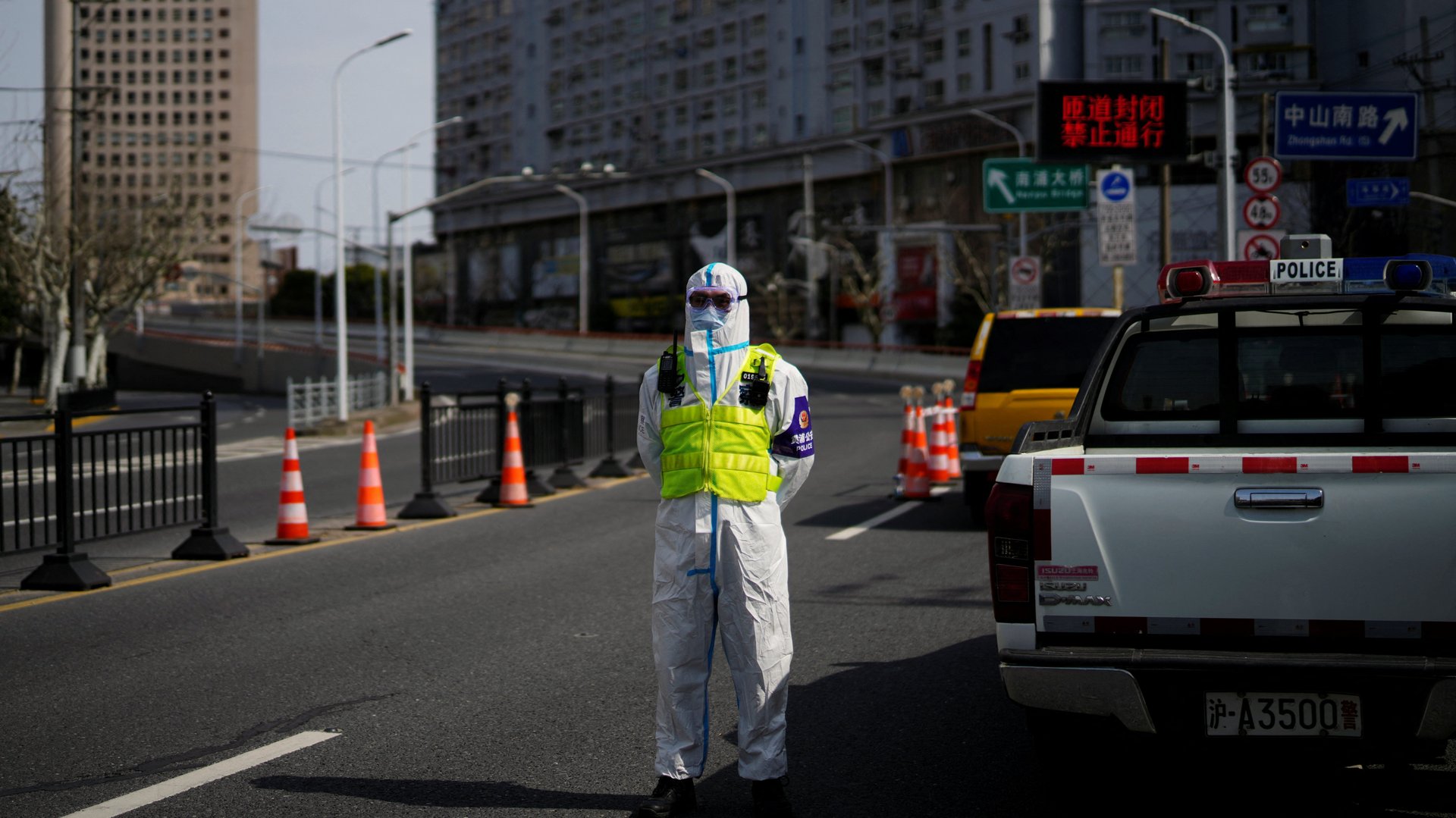China discovers a new omicron subvariant
On Monday (April 4), China’s Center for Disease Control and Prevention announced that it had sequenced a new subvariant of the omicron variant, according to the state-run Global Times.


On Monday (April 4), China’s Center for Disease Control and Prevention announced that it had sequenced a new subvariant of the omicron variant, according to the state-run Global Times.
The subvariant, labeled BA.1.1., does not match other coronavirus types sequenced in China or reported to the global variant database, and was found in a mild covid case in Suzhou, a city next to Shanghai.
China is experiencing its largest wave of covid infections since the start of the pandemic, with Shanghai, a city of 25 million, currently under a citywide lockdown. On Sunday, China reported more than 13,000 new cases. Local authorities have said omicron subvariant BA.2 is behind the new outbreaks.
The UK has likewise identified a new subvariant of omicron it has called XE. According to the UK Health Security Agency (UKHSA), hundreds of people in the UK have so far been found to be infected with XE, a small fraction of total covid infections in the country. It is too early to tell if XE is more transmissible than other subvariants of omicron, though it has been detected beyond the UK, in Thailand.
Covid surveillance is waning globally
The announcements of new omicron subvariants highlight the ongoing potential that another dangerous covid variant may yet emerge. However, as much of the world unwinds its pandemic restrictions, some covid gene sequencing and monitoring systems are being dismantled along with them.
Even as the UK’s world-leading covid surveillance system turned out new information about omicron’s subvariants, the government pushed ahead on Friday (April 1) to shut down two virus surveys and scaled down a third, according to The New York Times.
Testing has dropped dramatically in Israel, which earlier had gathered important information on the effectiveness of vaccines against variants that informed governments around the world. Denmark, which had an ambitious gene sequencing program at the height of the pandemic, stopped requiring testing for most people, shifting instead to monitoring wastewater as an indicator for spikes of covid cases.
The drop in global covid data may make it more difficult to predict surges and understand new variants, and restarting surveillance programs may prove difficult should a new variant require it.
South Africa, which was the first to name the highly transmissible omicron variant, and the US, are continuing their gene sequencing programs, as is China, which is pursuing a covid-zero policy at odds with global trends. According to the Global Times, Suzhou city, where the new subtype was discovered, conducts gene sequencing for each new covid case.